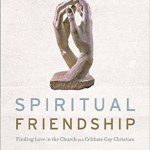There is a situation that I often encounter in my work. A person has been told by their pastor, spiritual director or confessor that, in their case, some particular sexual sin does not meet the criteria necessary for a sin to be mortal. It’s grave matter, sure, but there are extenuating circumstances of one kind or another that prevent them from being able to exercise the kind of complete, deliberate freedom that is required for mortal sin. Their director or confessor has advised them to proceed in a way that will minimize the harm done while they seek to remedy the circumstances that prevent them from being able to more fully live out the Church’s teachings on chastity.
In some cases, people in this situation have gone to multiple confessors, talked to multiple priests, sought opinions from theologians or Catholic medical professionals (including therapists). They’ve been told the same thing again and again – yet they are guilt-ridden and afraid. They still fear that they are in mortal sin, even though they have been assured that they are not.
Sometimes this is just a matter of private scrupulosity, but in a lot of cases there are external pressures that contribute tremendously to the person’s experience of guilt and despair. Simply put, many have been inducted in a kind of Catholic purity culture that promotes absolute, rigid adherence to the Church’s sexual rules as the sine qua non of Catholic identity.
I recall when I was a younger Catholic, deeply involved in the pro-life movement, one of the tropes that I heard repeated more or less continuously was the idea that the vast majority of bishops, priests and confessors are “raging liberals” who lead their flock astray by preaching a gospel of tolerance for sexual sin. In Catholic forums, where I often hung out, people would write that they had been told by their confessor that in their case some particular sexual infraction was compulsive, perhaps caused by immaturity, or by some sort of medical condition beyond the person’s control and that although they should continue to try to pursue chastity they should not consider themselves to be in mortal sin when they failed.
It was always an immediate pile-up as commenters jumped in to tell the person that their confessor was a liberal and a heretic. By no means should they take this advice seriously – not unless they wanted to court the damnation of their eternal soul. They needed to find a new confessor: a good, solid, pro-life priest who would tell them the truth about sin. In cases where the person protested that their confessor was in fact both orthodox and pro-life, the commenters would point out that sometimes sneaky liberals hide behind a veil of orthodoxy in order to lead the unwary astray.
I realize that people doing this do so with the best of intentions: they honestly believe that they are upholding the truth, defending the orthodox faith, warning people away from the precipice of sin and damnation. However, as they themselves are fond of pointing out, intentions do not cancel out the objective nature of a sin. The objective truth about this kind of aggressive Catholic sexual policing is that it is a cause of scandal. It encourages sincere Catholics, men and women of good will, to approach legitimate spiritual authorities with mistrust, and to look with suspicion upon the genuine mercy and compassion of Mother Church.
The consequences of this scandal can be grave. As someone who frequently has to perform spiritual triage on folks who the Pharisees and the Levites have left at the side of the road for dead, I’ve seen what this kind of callous legalism does to people. Its fruits are despair, self-hatred, toxic forms of excessive guilt, and an inability to believe in the mercy of God or of His pastors. In extreme cases, it can lead to suicidal compulsions and self-harm, or to people leaving the Church because it’s the only way that they can see to preserve their sanity.
Moreover, the legalistic application of the Church’s sexual teaching is not, in fact, in line with the full and authentic teaching of the Church. The Church explicitly teaches that in order for a person to be cut off from sanctifying grace and denied communion, they must be in a state of mortal sin. The Church defines three criteria which must be met in order for a sin to be mortal: “Mortal sin is sin whose object is grave matter and which is also committed with full knowledge and deliberate consent.” (CCC 1857) To teach that any grave offence should be presumed mortal, even when competent spiritual authorities and a sincere examination of conscience reveal that the conditions of full knowledge and deliberate (the Catechism also uses the word “complete”) consent are not met is heresy. It’s the heresy of legalism – and it is a false moral system just as erroneous as intentionalism or consequentialism.
When lay Catholics, or even priests who do not have the care of the soul in question, take it on themselves to judge cases solely according to the law, without reference to extenuating circumstances that may reduce culpability, they act in a manner that is severely contrary to charity.
First, they seek to establish themselves as the judge of another person’s soul. This is not merely a case of judging the objective moral content of particular acts: the person in question is aware that the actions are contrary to divine law and does not need to be told so again. These are not abstract theological discussions, they are discussions of the state of an individual soul in a particular case and they directly violate Christ’s prohibition against judging others.
Second, they place crushing burdens of guilt and responsibility on souls that are often already fragile and overburdened, bent under the weight of circumstances that they cannot control. This serves to communicate to the person that God is a merciless slave-driver who punishes the weak with death, not a loving Father who patiently upholds and sustains His faltering children. To speak this way of God is to lie about the very nature of Divine Love – as He Himself makes clear when He rebukes the callous and accusatory discourse of Job’s friends.
Finally, the person who behaves in this way places his own soul in jeopardy. He makes himself liable to the same kind of merciless judgement with which he prosecutes others. He judges, and will so be judged. For “there will be judgement without mercy for those who have not been merciful themselves; but the merciful need have no fear of judgement.” (James 2:13)
Photo credit: Pixabay













